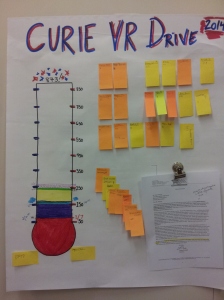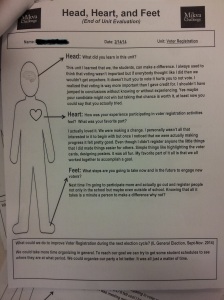…and all the testing that comes with it.
Below is the Press release from the Chicago Teachers Union. Proud of all the hard work we put into this over the past couple of years. Especially the work done by @msgunderson, @PhillipCantor @XianB8 @AnthonyCody. @Sarah4Justice (Chambers).
See y’all at AFT in July. Anyone want to hit up NEA in Denver on the way out?

2012 Suzuki C50T, my other ride is my father’s Honda CB750…needs work but pictures to come!
http://www.ctunet.com/blog/chicago-teachers-union-joins-opposition-to-common-core
Chicago Teachers Union joins growing national opposition to deeply flawed Common Core Standards
BY CTU COMMUNICATIONS | 05/07/2014
CHICAGO – Today, members of the House of Delegates (HOD) of the Chicago Teachers Union (CTU) passed the following resolution that enjoins the city’s educators to growing national opposition to the Common Core State Standards, saying the assessments disrupt student learning and consume tremendous amounts of time and resources for test preparation and administration.
Now that the resolution has passed, the CTU will lobby the Illinois Board of Education to eliminate the use of the Common Core for teaching and assessment; and be it further and will work to organize other members and affiliates to increase opposition to the law that increases the expansion of nationwide controls over educational issues.
Common Core’s origins can be traced to the 2009 Stimulus Bill which gave $4.35 billion to the federal Department of Education which created the “Race to the Top” competition between states. In order to qualify for funding, the states needed to adopt Common Core with the added incentive that participating states would be exempted from many of the more onerous provisions of George Bush’s “No child left behind” program.
“I agree with educators and parents from across the country, the Common Core mandate represents an overreach of federal power into personal privacy as well as into state educational autonomy,” said CTU President Karen Lewis, a nationally board certified teacher. “Common Core eliminates creativity in the classroom and impedes collaboration. We also know that high-stakes standardized testing is designed to rank and sort our children and it contributes significantly to racial discrimination and the achievement gap among students in America’s schools.”
The official text of the resolution follows:
Resolution to Oppose the Common Core State Standards
WHEREAS, the purpose of education is to educate a populace of critical thinkers who are capable of shaping a just and equitable society in order to lead good and purpose-filled lives, not solely preparation for college and career; and
WHEREAS, instructional and curricular decisions should be in the hands of classroom professionals who understand the context and interests of their students; and
WHEREAS, the education of children should be grounded in developmentally appropriate practice; and
WHEREAS, high quality education requires adequate resources to provide a rich and varied course of instruction, individual and small group attention, and wrap-around services for students; and
WHEREAS, the Common Core State Standards were developed by non-practitioners, such as test and curriculum publishers, as well as education reform foundations, such as the Gates and Broad Foundations, and as a result the CCSS better reflect the interests and priorities of corporate education reformers than the best interests and priorities of teachers and students; and
WHEREAS, the Common Core State Standards were piloted incorrectly, have been implemented too quickly, and as a result have produced numerous developmentally inappropriate expectations that do not reflect the learning needs of many students; and
WHEREAS, imposition of the Common Core State Standards adversely impacts students of highest need, including students of color, impoverished students, English language learners, and students with disabilities; and
WHEREAS, the Common Core State Standards emphasize pedagogical techniques, such as close reading, out of proportion to the actual value of these methods – and as a result distort instruction and remove instructional materials from their social context; and
WHEREAS, despite the efforts of our union to provide support to teachers, the significant time, effort, and expense associated with modifying curricula to the Common Core State Standards interferes and takes resources away from work developing appropriate and engaging courses of study; and
WHEREAS, the assessments that accompany the Common Core State Standards (PARCC and Smarter Balance) are not transparent in that –teachers and parents are not allowed to view the tests and item analysis will likely not be made available given the nature of computer adaptive tests; and
WHEREAS, Common Core assessments disrupt student learning, consuming tremendous amounts of time and resources for test preparation and administration; and
WHEREAS, the assessment practices that accompany Common Core State Standards – including the political manipulation of test scores – are used as justification to label and close schools, fail students, and evaluate educators; therefore be it
RESOLVED that the Chicago Teachers Union opposes the Common Core State Standards (and the aligned tests) as a framework for teaching and learning; and be it further
RESOLVED, the Chicago Teachers Union advocates for an engaged and socially relevant curriculum that is student-based and supported by research, as well as for supports such as those described in the Chicago Teachers Union report, The Schools Chicago’s Students Deserve; and be it further
RESOLVED, the Chicago Teachers Union will embark on internal discussions to educate and seek feedback from members regarding the Common Core and its impact on our students; and be it further
RESOLVED, the Chicago Teachers Union will lobby the Illinois Board of Education to eliminate the use of the Common Core State Standards for teaching and assessment; and be it further
RESOLVED, the Chicago Teachers Union will organize other members and affiliates to increase opposition to the Common Core State Standards; and be it further
RESOLVED, that a copy of this resolution be sent to the Illinois State Board of Education, the Chicago Board of Education, the Governor of Illinois, and all members of the Illinois legislative branch; and be it finally
RESOLVED, that should this resolution be passed by the CTU House of Delegates, an appropriate version will be submitted to the American Federation of Teachers for consideration at the 2014 Convention.



